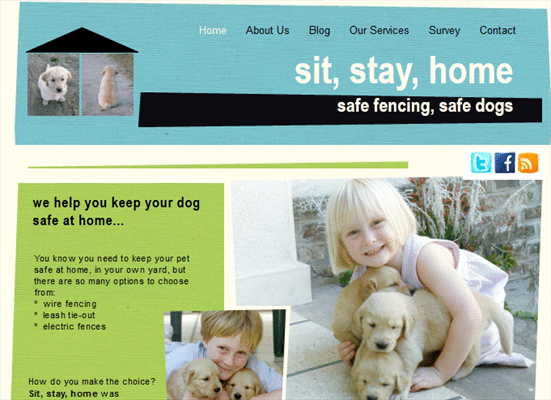Different Keywords for Different Customers

The right keywords are key to good SEO rankings, and good SEO rankings are key to increasing awareness of your services and products – and eventually sales – from the web. Nothing earthshaking there.
Now, if you want dissension, get three marketers in room and ask them how to choose the best keywords.
They’ll probably all agree that you can select good keywords by answering three questions:
- What is the product/service we offer? (Let’s say we sell electric dog fences.)
- What is the customer’s problem? (My dog escapes from my yard!)
- What solution are they looking for? (There are various ways to keep a dog in your yard. We don’t want to sell dog runs or traditional fences, though.)
Since prospects are at different places in the buying cycle – that is, they are seeing the problem in different ways, from different perspectives – the best keywords for each stage of those buying cycles are different. This means that the best content for each stage is different, too. (Because another thing marketers agree upon: write for the reader and for SEO. Ignore either at your peril.)
Prospects can be found in at least three different places in the buying cycle (different states of readiness to buy).
Stage 1 of the Buying Cycle: Awareness
Recognizing a problem and corresponding need, the prospect will have some preconceived notions about how to solve his problem. (Dumb dog! I’m going to have to get a new fence or tie him up!) At this point, the prospect is not quite ready for a chart comparing how much better your solution is vs the competitor’s. Instead, you can reach them with keywords – and content – that talk about the issue, not your solution, and answer their questions about solving their problems on a broader, more generic level. (Pros and cons of tying him to a tree.)
Stage 2 of the Buying Cycle: Consideration
Investigating options can be a long process, all about comparison – comparisons involving price constraints, convenience, moral considerations (Should I buy local? or from my friend Joe? Does it have to be made in the USA?) and myriad factors. It is appropriate in this stage to use more refined keywords (enter the concept of “long-tail”) – and content – that demonstrate your value. The prospect is looking for evidence that going with your solution is the right decision. How do you compare to your competitors? (Here’s an appropriate time for that comparison chart.) How do your current customers feel about your product or service? (Use those glowing customer testimonials to demonstrate your value.) What are the proven ways your product or service can address the issue at hand? (Is your product endorsed by the local veterinary society, has it received some other professional vote of confidence?)
A tip: Respect the process. Generally speaking, an educated customer is a satisfied customer – one that’s likely to become a repeat buyer – but cultivating them requires patience. For some, investigating options is quick, for others it’s an education-intensive, protracted process. Eventually, though, there’s…
Stage 3 of the Buying Cycle: Purchase
Ready to buy! If you’ve nurtured your prospects correctly through this journey, by the time they reach this stage, their decision is nearly made, and you just need to help them over the finish line. Your keywords – and content – will focus on your brand, and your product or service features.
Of course, the end of the story can be happy or sad. This is not the time to sit back and assume that your keywords – and content – will make the sale. A lot of seemingly small things can derail a purchase at the last minute – including an expired coupon, high shipping fees, or a technical snafu in the shopping cart. Some prospects will return to buy at a later time; others abandon the purchase and move on to a predetermined Plan B. (Sell the dog?)
And of course, a sale shouldn’t be the end of the story, it should be the beginning of the customer relationship…
…which we’ll discuss in future posts. Just be aware, it may cause a ruckus.
Originally written by Diane Stresing, January 2013. Revised and updated by Audrey Trieschman June 2015.
Sales Renewal’s insight:
The right keywords are key to good SEO rankings, and good SEO rankings are key to increasing awareness of your services and products – and eventually sales- from the web. Nothing earthshaking there.
Now, if you want dissension, get three marketers in room and ask them how to choose the best keywords.



